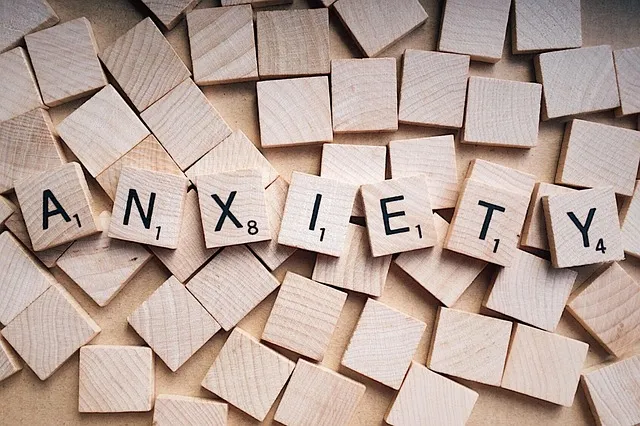Louisville Kaiser mental health programs tackle the profound stigma surrounding mental illness affecting diverse communities in Louisville. Through a multi-faceted approach, they offer Mental Wellness Coaching, Burnout Prevention strategies, Crisis Intervention, Cultural Competency Training, and Coping Skills Development to reduce stigma's negative impact. Engaging workshops, forums, and campaigns foster community education and support. Long-term tracking via surveys and focus groups measures success in improving mental health literacy and creating more inclusive environments for individuals facing mental illness challenges.
In Louisville, mental illness stigma remains a significant barrier to access and recovery. This article explores comprehensive efforts to reduce this stigma, focusing on the impactful role of Kaiser Mental Health Programs. We delve into community engagement strategies, education initiatives, and successful evaluation methods. Understanding the profound effects of stigma on mental health is crucial, especially within our local context. By examining Louisville’s journey, we can gain valuable insights for fostering a more supportive environment for those facing mental health challenges, with a special emphasis on Kaiser’s leading programs.
- Understanding the Impact of Stigma on Mental Health in Louisville
- The Role of Kaiser Mental Health Programs in Reducing Stigma
- Community Engagement and Education Strategies for Stigma Reduction
- Measuring Success: Evaluating the Effectiveness of Stigma Reduction Efforts
Understanding the Impact of Stigma on Mental Health in Louisville

In Louisville, the impact of mental illness stigma is profound and far-reaching. The city’s diverse population faces unique challenges when it comes to mental health, with certain communities bearing a disproportionate burden. According to research, high levels of stigma are associated with increased anxiety, depression, and avoidance of seeking help among residents. This stigma often manifests as prejudice, discrimination, and stereotypes, creating barriers to access and understanding for those struggling with mental health issues.
Louisville Kaiser mental health programs have been at the forefront of Mental Illness Stigma Reduction Efforts. Their initiatives include Mental Wellness Coaching Programs Development that focus on fostering empathy and understanding within communities. These programs aim to combat burnout among support systems, ensuring they can offer sustained aid without succumbing to stress or exhaustion. By integrating Burnout Prevention strategies, Louisville Kaiser seeks to create a supportive ecosystem where individuals feel safe to disclose their mental health struggles, thereby reducing the negative impact of stigma on local residents’ well-being.
The Role of Kaiser Mental Health Programs in Reducing Stigma

The Louisville Kaiser mental health programs have played a pivotal role in reducing the stigma associated with mental illness within the community. These initiatives focus on providing comprehensive care and education, targeting both individuals struggling with mental health issues and healthcare providers. Through their Crisis Intervention Guidance, they offer immediate support during times of crisis, helping to destigmatize the need for emergency assistance.
Additionally, Kaiser’s Healthcare Provider Cultural Competency Training equips medical professionals with the skills to address cultural barriers and biases, ensuring more empathetic and effective treatment. The programs also emphasize Coping Skills Development, empowering individuals to manage their mental health proactively. These multifaceted approaches have significantly contributed to fostering a more supportive environment for those facing mental health challenges.
Community Engagement and Education Strategies for Stigma Reduction

Community engagement and education are powerful tools in the fight against mental illness stigma. Programs like those offered by Louisville Kaiser Mental Health aim to foster open conversations about mental health, reducing stereotypes and misconceptions. By organizing workshops, community forums, and educational campaigns, they bring together diverse groups to learn, share experiences, and offer support. This collective approach helps break down barriers and encourages individuals to seek help without fear of judgment.
Through interactive sessions, participants can gain a deeper understanding of various mental health conditions, learn effective conflict resolution techniques for navigating challenging conversations, and engage in self-esteem improvement exercises. Additionally, activities such as Mental Wellness Journaling Exercises Guidance have proven beneficial in promoting self-reflection and encouraging individuals to prioritize their mental well-being. These initiatives not only reduce stigma but also empower communities to create a more inclusive and supportive environment for those facing mental health challenges.
Measuring Success: Evaluating the Effectiveness of Stigma Reduction Efforts

Measuring success is a vital aspect of evaluating the effectiveness of mental illness stigma reduction efforts. Organizations like Louisville Kaiser Mental Health Programs have been at the forefront of implementing various initiatives to combat this pervasive issue. Their approach involves not only direct intervention but also long-term tracking of societal attitudes and behaviors. This includes surveys, focus groups, and community engagement metrics to gauge changes in public perception. By comparing pre- and post-program data, they can assess the impact on both individual and collective mental health literacy.
One key indicator is the level of self-Awareness Exercises participation, which has shown promising results in fostering empathy and understanding. Additionally, tracking the adoption of stress reduction methods among targeted communities highlights the success of these programs. As stigma reduction efforts continue to evolve, ongoing evaluation ensures that strategies are tailored to meet the unique needs of diverse populations, ultimately leading to more inclusive and supportive environments for those dealing with mental illness.
Louisville’s efforts to reduce mental illness stigma have gained significant traction, particularly through innovative programs like those offered by Kaiser Mental Health. By combining community engagement and education strategies, these initiatives have shown promise in fostering a more accepting environment for individuals facing mental health challenges. Moving forward, continuous evaluation of stigma reduction efforts, such as measuring the impact on service utilization and patient outcomes, is crucial to ensure that Louisville remains a leader in this vital endeavor, leveraging the success of programs like Kaiser Mental Health to create a more inclusive and supportive community for all residents.






